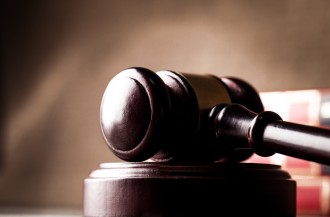
October 24, 2017
Bryan Wheelock Quoted in Law60 Article on Ensnarement Defense
A recent article from Law360 explores the rarely seen ensnarement defense used in patent infringement proceedings. Harness IP patent attorney Bryan Wheelock helped weigh in on the topic, giving background on the defense strategy and offering advice for future patent owners.
The ensnarement defense was used last month in Jang v. Boston Scientific Corp., in which Dr. David Jang accused Boston Scientific of infringing his patent for a coronary stent. A jury had originally found that Boston Scientific infringed Dr. Jang’s patent, but the judge then overruled their verdict based on the ensnarement defense.
Broadly, ensnarement provides an avenue for defense that prevents patent owners from claiming infringement under the doctrine of equivalents if the broadening of the claims necessary to cover the accused device also encompasses, or “ensnares,” the prior art. In other words, patent owners can’t use the doctrine of equivalents to broaden their claims to cover an accused device if that broadening would also cover the prior art.
One method of evaluating ensnarement is to create a hypothetical claim based on the actual claim that covers the accused device, and then considering whether such a hypothetical claim also covers the prior art. The test is whether the broadening of the claim ensnares the prior art, as the patent owner is not allowed to simultaneously remove a limitation to broaden the hypothetical claim and add a limitation to cover the prior art — which is what the Court had found Jang did.
The hypothetical claim exercise is not an opportunity to rewrite the claims; it is simply a way to test whether the application of the doctrine of equivalents is proper. Wheelock notes that, if Dr. Jang could have simply rewritten his original claims with the new-and-improved hypothetical claims, he would be in a much better place. Yet that it not what the doctrine of equivalents allows.
“The lesson for patent owners is that you’ve got to write the best claims that you can to keep your options open,” Wheelock said. “You have to plan for literal infringement; the doctrine of equivalents is a fickle friend.”
…


